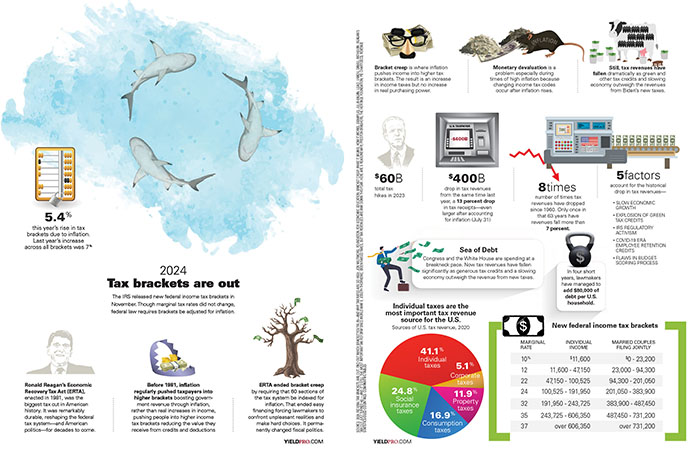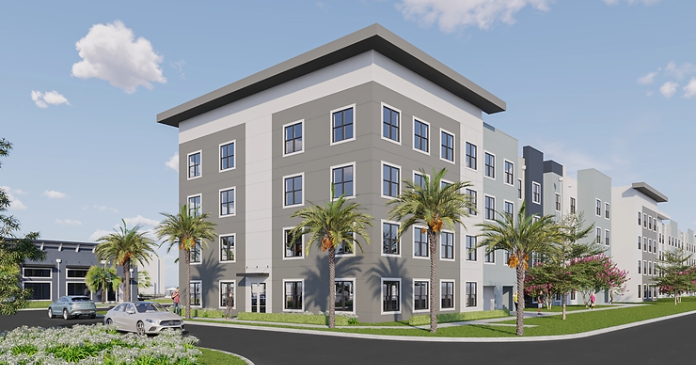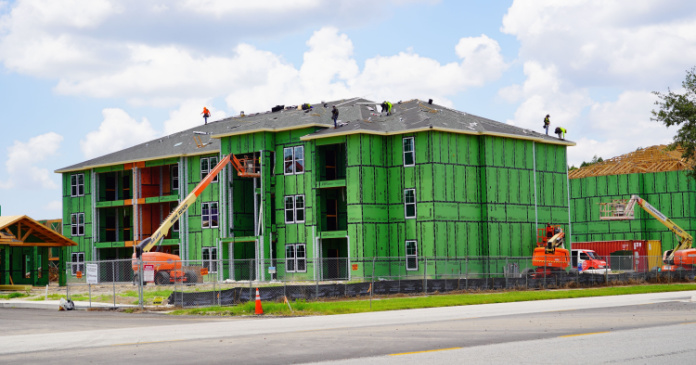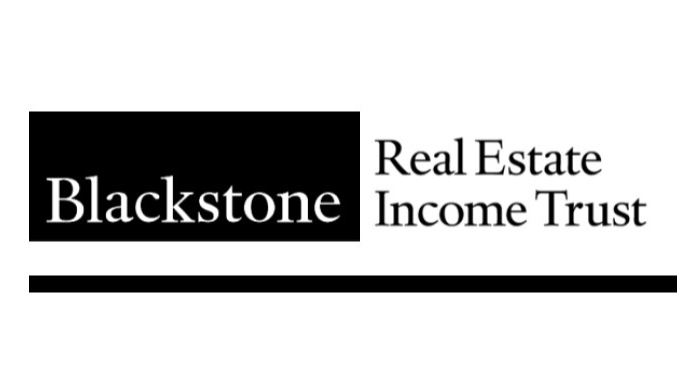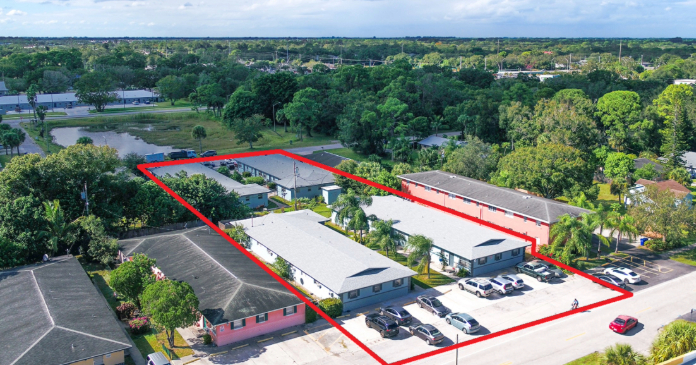Jackson has extensive housing, finance and management experience having directed public housing authorities in St. Louis, Washington, DC and Dallas. Jackson also served as chairman of two redevelopment agencies in Washington, DC and St. Louis. Under his leadership, the Dallas Housing Authority received the highest-ranking HUD awarded to any big city public housing agency — consistently scoring 94 on a 100-point management scale to measure the performance of local housing authorities.
In his confirmation testimony before the Senate Banking Committee, Jackson pledged to continue improving HUD’s own management. Jackson said, “My experiences as a public servant are balanced by my work in the private sector. There, I learned the importance of effective management in a successful enterprise. Sound management and excellence in program performance are critical to any organization’s success.”
Jackson assumes the helm of the $32 billion agency charged with making housing and home ownership more affordable to Americans and seeking to address the problems of chronic homelessness in the nation. The most recent count estimates there are between 2.3 and 3.5 million people homeless over the course of the year. Numerous studies by universities and industry organizations portray the state of affordable housing as one in crisis.
Following his nomination and approval by the senate, Jackson announced his commitment to expanding the dream of home ownership for millions of Americans. He has also announced actions to eliminate housing bonus points for Fannie Mae and Freddie Mac and monitor their activities more closely.
On February 8, President Bush unveiled his proposed budget for fiscal year 2006 which included $28.5 billion for HUD programs. The 2006 HUD budget slated a $1 billion funding increase for Section 8 voucher program, a program many thought was doomed for extinction. This major increase brings HUD’s total commitment to helping lower income families find affordable rental housing to approximately $18.4 billion of 65 percent of HUD’s overall budget.
“This budget reflects some of the tough choices we must make to continue meeting our nation’s key priorities,” said Jackson. “Our commitment to expanding economic opportunity through home ownership continues and we will make certain we house and serve those who are most vulnerable.”
Readers are invited to respond to AP with comments and questions or concerns about HUD and Secretary Jackson’s agenda for affordable rental housing.
AP: What is your response to the criticism that HUD emphasizes homeownership at the expense of multifamily?
Sec. Jackson: Over the last three years there has been a great deal of criticism of this President and this administration saying that we emphasize homeownership. We do, but multifamily is a core part of our portfolio. We cannot and do not want to get out of the multifamily business. We strive to make people homeowners but we also realize that everyone is not able to own a home. So our primary goal is to make sure that affordable housing is on the market and that it’s decent, safe and solid for residents who must live in or choose to live in multifamily housing.
It’s important from the very beginning to set aside the rumor that our core emphasis is home-ownership. Our emphasis is on quality housing that’s affordable whether it’s rental or home-ownership. First and foremost we have to be good landlords; our Section 8 program is 65% of our budget and rentals account for 90% of that. We will not in any way backtrack; we will constantly emphasize the importance of a viable rental market.
As I travel around the country, I see more and more people living in multifamily homes, and when I say homes I always like to say homes whether it’s rented or owned, we’re talking about peoples’ homes period. I’ve been criticized somewhat in the industry for saying that.
AP: Is part of your mission to amplify that message to multifamily?
Sec. Jackson: We have tried and will continue to do an effective job making sure the multifamily industry understands that this President is committed to a multifamily market. Let me quote you something that most people did not pay any attention to. In his acceptance speech at the Republican National Convention, the President challenged me and HUD to create seven million more affordable housing units in this country by 2015. Two years earlier he challenged us to create 5.5 million new minority homeowners. When I talked to the President the morning before the speech, he specifically said that we need to emphasize to those citizens unable to own a home that we are concerned that their communities are livable, that they have good schools, good, accessible public transportation. He said he was going to challenge the multifamily industry, Fannie Mae, Freddie Mac, to build seven million more affordable units.
AP: How realistic is seven million?
Sec. Jackson: Let me tell you why it’s doable. Everything the President has asked us to do is thought out. Two years ago when we started the process of home-ownership and he said 5.5 million new minority homeowners by 2010, everybody said, “You can’t do it.” Well we’re at 2.2 million in 2005, so we’re going to do it. The President wants us to create seven million affordable apartment homes and he wants it done by 2015, and clearly we can do it. It’s not a problem. Our position is it can be done, it will be done. And let me tell you why it can be done. Positive leadership starts at the top. When people realize you’re serious about creating more affordable housing, they will do it. Just like when we were serious about creating home-ownership. We’re very fortunate that we have some of the best multifamily professionals in the country working for HUD. So we can’t do it alone. That’s impossible. But we can work with the industry to create it and we will do whatever is in our power to work with them. Again I’m very fortunate to have Stillman Knight as my Deputy Assistant Secretary, who has a tremendous background in multifamily. He came out of private industry and brings a wealth of knowledge.
AP: In what ways are you going outside the traditional programs, stepping outside of Section 8 and looking for other ways to incentivize the industry to develop more affordable housing?
Sec. Jackson: That’s the most important part of our current program. We’re trying to create tax centers, so developers will have a reason to develop multifamily housing in this country. We have the lower income tax credit in most states and cities that’s been related to elderly or single-family housing. We’re stressing that we have families in transition in need of the same help. So our position is to work our money into other funds to be able to do this.
One of the things President Bush and I stress more than anything else is the potential of “exurban” areas. Let me tell you the problem I see with this exurban area. No community can thrive without a viable inner core. That’s why the President wants to bring people back; his plan is to develop small city cores, revitalize urban centers and create vibrant neighborhoods. Demographically, many of the people we’re bringing back into the urban core are young people; we accept that. These are transitional families we’re bringing back downtown. Typically, they spend from three to five years working for Bank of America, or Wells Fargo, or Pfizer; the key is they don’t have a long work commute. They’re not going to buy a home downtown. So how do we bring people back to the inner core? Two great examples are Dallas and Los Angeles. Dallas finally came to its senses and began to create viable multifamily housing downtown. Los Angeles has been doing it for a long time. There are two success stories.
Most people don’t realize it but more and more commercial ventures are coming back into the urban setting. I am not anti-suburbia. That’s not it at all. I’ve learned something from running three housing authorities and being the Chairman of two community development agencies – without a viable inner core a city will decline rapidly. Another example is Houston, which today is considered one of the best cities to live in. They made a decision to bring housing back into town. They brought the sports venues back. And I can tell you when I was going there 15 years ago at 5:00 there was nobody downtown. Today, look at all of the apartment complexes surrounding the downtown area and all the people from 29 to 35 out until 7:30 or 8:00. That’s great revenue for the city. Having said that, my position is yes, we will meet the President’s challenge of seven million new units. The opportunities are there.
AP: The recent Fannie Mae scandal has raised concerns within the housing industry; do you see any impact on multifamily or housing in general as a result?
Sec. Jackson: No. In fact Fannie and Freddie just signed on to our Fair Housing bill for the next five years. They made a decision about investing their financial reserves and it will take some time to correct them. But I don’t think it has a serious dynamic of hurting the market. I think if we said to them your task is two-fold, one to serve low-income people and two to serve low-income areas. That’s their job, that’s their charter. We don’t care about them going to the higher end of the market, that’s their right. They can buy loans and make money and hold them in market security. The point is as long as they serve the population that we think is really important by buying the loans, that’s ok. Their customers are moderate-income people who want to buy a home and lower-moderate income properties or rentals, or middle market properties and rentals. Now there’s the argument that if we ask them to meet this goal, it’s effectively going to close the moderate-income market. That’s not true. The two are not incompatible. They are not an oxymoron. It’s that Fannie and Freddie were finally looking at it objectively. Their perspective was a focus on taking care of the shareholders; they kept having 10% or 18% profit, and that’s out of line.
Here’s an example. You can only have those kinds of profits if you have a guarantee from someone, and they had a guarantee. There is not a bank in this country that can leverage the dollar 7 to 1. Most of the banks, the federal home loan banks or the Savings and Loans, are 11 to 1, and you have to be J.P. Morgan Chase to do that. Otherwise you’re looking at 7 to 1. So it’s clear what artificial boundaries Fannie and Freddie lived under. We are bringing them back to reality. They are not bad people, I don’t want anyone thinking that, shareholders’ return or shareholders’ value became their priority and they got away from serving the people.
AP: What are your proudest achievements as HUD Secretary?
Sec. Jackson: The problem we had when we walked in here was that the multifamily program had to be closed down because it had not been managed properly. We went to Congress and told them that if they would give us a special allocation that we raise the MIP (Mortgage Insurance Premium), which had always been at 50, to 80 for a temporary period of time, we would be able to make the allocations in loans and that we would not have to come back. Now since then we’ve gone back down. In 2004, we went down 45 base points. And so we shored up the program to make sure they want to develop multifamily properties. That’s very important because we are talking about seven million new affordable housing units. We have to take a hard look and find the best way to facilitate the development of these properties. I think there are regulatory barriers. It’s the fees from regulatory barriers that many people face in building multifamily apartments in this country. This is the difference in dollar value in our MIP since 1990; you see the huge positive that’s occurred in the past 4 years.
That’s the affordable housing concept. We have problems in this country. And the problem is regulatory barriers. Our position is these barriers must be removed. The same thing with multifamily properties. They regulate it to death. The question is what will work for the cities and counties? Let me tell you the answer. The first step is to eliminate HUD’s regulatory barriers. We’re working on it internally — the goal is less paperwork, less hoops to jump through in order to develop housing or qualify for programs — we’re about 75% of the way there. Then I can ask communities around the country to eliminate or at least reduce their regulatory barriers. Once that is done we can coordinate with counties and cities to get things done.
We are going to do what the President asked us to do on both the home-ownership side and the affordable housing side. I was an all-American track runner in high school and college. And I always came to the same conclusion that if you don’t get yourself in good shape you can’t talk about your teammates. So my perception is that until we’ve cleaned up all the problems we have in HUD, there’s no reason I can latch onto the tail of Governor Schwarzenegger or Governor Pataki in New York and tell them to clean up their homes.
At Jackson’s nomination hearing in February 2004, Senator Paul S. Sarbanes (D-MD) described the position of Secretary of HUD as “one of the most challenging in the President’s Cabinet.” Looking at the scope of responsibilities under HUD, no one can disagree with that statement. The head of HUD oversees the nation’s housing assistance programs, community development initiatives and the Federal Housing Administration, GSEs (government-sponsored-enterprises) and numerous other entities. In his hands rests the fate of millions of Americans in urgent need of safe, affordable housing.
Jackson’s experience running the Public Housing Authorities in St. Louis, Washington, DC, and Dallas and his long career as a powerful business executive gives him a solid background for dealing with the divergent issues facing HUD. His Deputy Assistant Secretary, Stillman D. Knight, Jr., heads up the multifamily housing division of HUD and brings extensive experience as a developer to the role.
It is this practical, inside experience that enables Jackson to pinpoint key areas where HUD and government housing programs most need improvement — regulatory barriers and management reform. Under Jackson, a concerted effort has been made to streamline processes and improve staffing and management of HUD.
IS HUD ON TRACK?
As with any federal agency, HUD has been surrounded by controversy and there are mixed views on whether the agency has been as effective as it should be.
From the viewpoint of some in Congress and many affordable housing and social welfare program providers, this administration in general, and HUD in particular, have made a concerted effort to reduce spending and to curtail the scope of a number of programs, eliminating some entirely, such as Hope VI. Several times in recent years the Section 8 program was rescued from elimination by a coordinated effort of a coalition of affordable housing agencies, related associations, nonprofits, and charities that successfully lobbied Congress to preserve the program.
The administration’s proposed $28.5 billion budget for HUD in 2006 represents an 11.5 percent reduction from fiscal year 2005. HUD’s budget for affordable rental housing is down 9 percent from 74 percent in 2005 to 65 percent for 2006.
According to the National Council of Housing State Agencies’ (NCHSA) policy and government affairs group, most of the funding cuts result from the administration’s proposal to consolidate the Community Development Block Grant (CDBG) program, the Rural Housing and Economic Development (RHED) program, other HUD programs, and some programs administered by other federal departments into a new community and economic development block grant program administered by the Department of Commerce. (Editor’s note: See box below for agency definitions.)
The general thrust of the HUD budgetary initiatives are to pull back funding for the majority of HUD programs with the exception of the Section 8 voucher program, a political hot potato, leaving enough funding to cover existing vouchers. HOME got a slight increase, but its formula grant was reduced. Hope VI has been completely eliminated.
Many critics and media sources maintain that HUD’s promotion of home-ownership opportunities has been at the expense of affordable rental housing programs. Jackson says this isn’t so and points to increases in Section 8 and other programs. The fact is that both the media and the administration promote their successes with home ownership more than any achievements in rental housing. The result has been a misconception about HUD’s emphasis and priorities.
Still, others question whether HUD is effectively meeting its challenges. At his nomination hearing, Secretary Jackson acknowledged numerous management and related problems he had inherited from past leadership and pledged to address them.
“For many years HUD has been considered troubled by the GAO (General Accounting Office) and its own surveys, as well as those of the Office of Management and Budget,” said Senator Sarbanes. Both the GAO and OMB indicated that HUD needed to improve its performance to be considered effective.
“HUD budgets under the present administration, indeed under past administrations, have been inadequate and this year is no exception,” said Sarbanes. He said the 2005 budget drastically under-funded the voucher program by more than a billion dollars, a cut that imperils housing for some 250,000 low-income families.
Yet, under the present administration, HUD has compiled some impressive successes. There are more than 1,000 projects with over 86,000 units processed under the Mark to Market Program, over 350 projects with approximately 32,000 units processed under the Section 236 Decoupling Program and approximately 800 projects with some 80,500 units processed under the Mark Up to Market Program. In these three programs combined, the Department has preserved the affordability of over 2,000 projects with about 200,000 units.
More than 4,400 local homeless programs across America will receive a record $1.4 billion in grants from HUD this year — the largest single commitment of federal funds designed to provide shelter and care for homeless in line with the President’s goal of ending chronic homelessness. Secretary Jackson said the funding represents the largest level of support for an unprecedented number of local projects on the front lines of caring for people otherwise living on the streets.
The Census Bureau recently released data showing a new national homeownership record set in 2004. The new annual rate of 69.0 percent surpasses the previous record of 68.3 set in 2003. The new quarterly rate of 69.2 percent ties the all-time record set in the second quarter of 2004 and means there are now 74,414,000 American families who own their own homes.
Minority home-ownership also set records. A new record annual rate of 51.0 percent was set in 2004 and the quarterly news is even better. Minorities set a new quarterly record of 51.4 percent in the fourth quarter. There are now 15,504,000 minority homeowners in the United States.
The administration has already met 40 percent of its goal to increase new home ownership among minorities by 5.5 million by the end of the decade with a net increase of 2.2 million by fourth quarter of 2004.
Given budget constraints, a huge federal deficit, the war in Iraq and a recovering economy, domestic spending remains a victim of harsh budget realities. Meanwhile, affordable housing conditions worsen daily. The numbers are shocking, more than 14 million American households pay more than 50 percent of their income for housing or live in substandard conditions. At any given point in the year, between 2 and 3 million Americans are homeless while countless others straddle the line, one paycheck away from the street.
For HUD there are no easy answers. The facts are that federal funds are scarce; the demand for affordable housing outstrips the supply; the nation’s existing stock is aging and in poor condition; costs for land and development for affordable housing are prohibitive; obstacles to new development exist in communities nationwide.
Yet, Secretary Jackson remains committed to providing safe, decent homes to more Americans in need while reducing the regulatory and procedural barriers that stand in the way.





